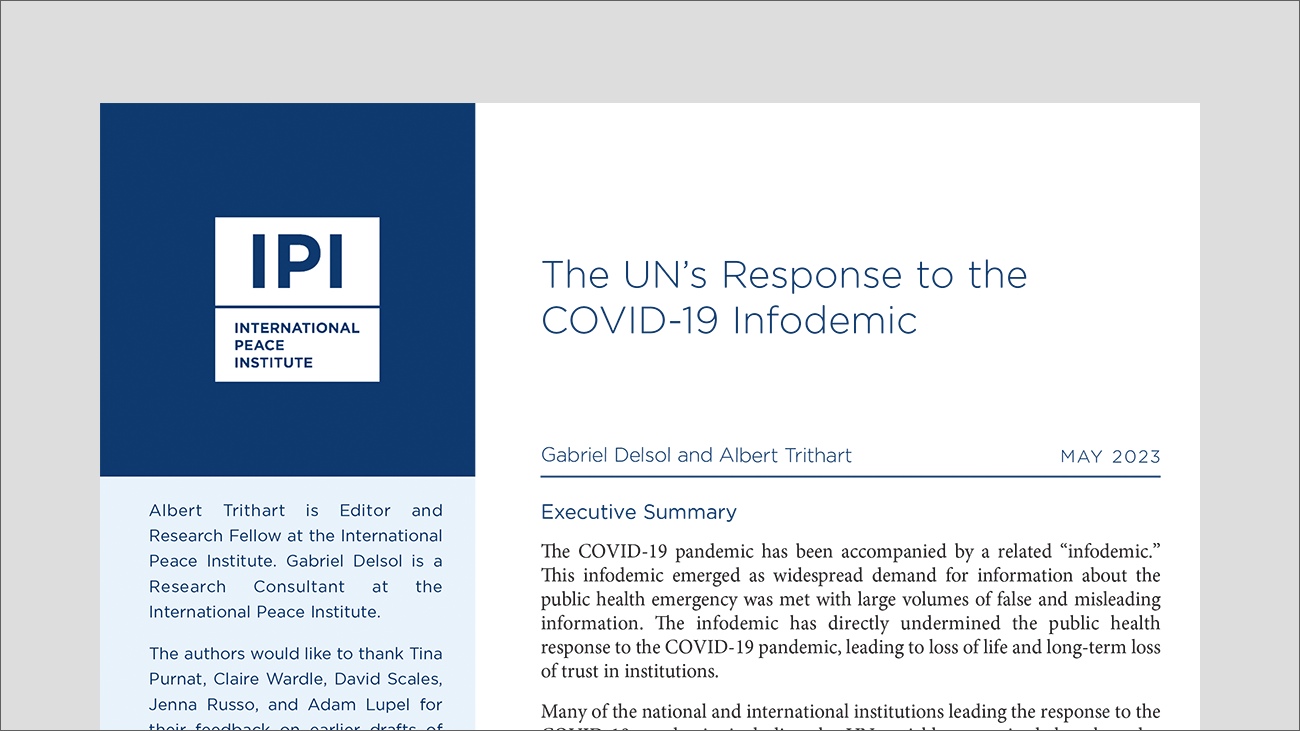
The COVID-19 pandemic has been accompanied by a related “infodemic.” This infodemic emerged as widespread demand for information about the public health emergency was met with large volumes of false and misleading information. Many of the national and international institutions leading the response to the COVID-19 pandemic, including the UN, quickly recognized that they also needed to respond to the infodemic. This led to a quick, broad-based response by a broad array of UN agencies and partners. To date, however, there has been no systematic mapping or assessment of the range of initiatives across the UN system.
To begin filling that gap, this paper provides an overview of the UN system’s response to the COVID-19 infodemic across four areas: monitoring harmful information related to COVID-19; dispelling false information and providing authoritative information; building information resilience; and setting the agenda. It then assesses some of the successes and challenges of the response across four areas: external partnerships, including with governments, civil society, academia, and social media companies; coordination within the UN system; financial, human, and technological capacity; and impact assessment.
The report concludes that the UN’s infodemic response finds itself at a pivotal point: Due to donor fatigue around COVID-19, funding for the infodemic response is falling even while the need for a robust infrastructure to address infodemics and other information disorders may be increasing. UN entities working to address the infodemic and other information disorders should therefore consider the following:
- Engaging in a consultative process to develop a shared understanding of the infodemic by defining its specific harms in relation to each of their mandates;
- Sustaining and building capacity to counter infodemics and other information disorders, both in communications departments and in other sections working on infodemic management;
- Adopting a more standardized, system-wide approach to the use of new technologies and engagement with technology platforms; and
- Continuing to strengthen long-term information resilience by building the capacity of governments to manage infodemics and supporting strong, independent media.







